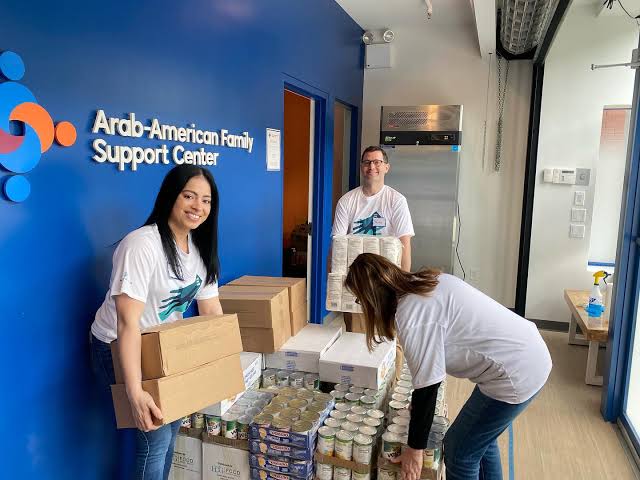Navigating the delicate art of meal arrangements can often be one of the more challenging parts of hosting any kind of gathering. Whether it’s a family dinner, a friend get-together, or a casual workplace event, the question arises: who’s responsible for providing the food? You may want to let people know that they are responsible for their own meal, but how do you express this idea in a way that’s clear, respectful, and considerate?
In this detailed article, we’ll guide you through various ways to communicate that everyone is in charge of their own meal. We’ll discuss when and why you might need to say this, how to phrase it tactfully, and how to ensure no one feels uncomfortable. It’s a sensitive topic that requires the right tone to ensure everyone feels respected and at ease.
Why You Might Need to Communicate Meal Responsibility
The first step is understanding why you would want to say that everyone is responsible for their own meal. It can arise for a variety of reasons, such as dietary restrictions, personal preferences, or simply the desire to avoid the hassle of cooking for a large group. Here’s why this approach might be the best option for your gathering:
- Dietary Needs and Preferences: Every person has different tastes, restrictions, and food preferences. Someone might be gluten-free, another vegan, and yet another might only eat seafood. When you’re hosting a gathering, trying to accommodate everyone’s specific meal requirements can be overwhelming. Allowing each person to choose what they eat takes the burden off the host and ensures no one feels left out or dissatisfied.
- Simplifying Logistics: If you’re hosting a casual event like a potluck, picnic, or a workplace lunch, organizing a meal for everyone can be a lot of work. You may not have the resources, time, or space to prepare individual meals. In such situations, it’s much easier and more practical to let guests take the responsibility for their own meals.
- Cost Efficiency: Depending on the size of the group, feeding everyone can become quite expensive. Letting people handle their own meal expenses is a straightforward way to keep costs under control. This also avoids the awkwardness of one person footing the bill for everyone else.
By understanding why this approach is beneficial, you can better communicate your decision with your guests.
How to Communicate the Idea Gently and Clearly
When it comes to delivering the message that everyone is responsible for their own meal, clarity and tact are key. You don’t want anyone to feel that you are shirking responsibility or that they are being abandoned. The goal is to communicate the message with kindness, ensuring that your guests understand the reasons behind this choice and that they feel comfortable with it.
Casual Setting
If you’re hosting a relaxed and informal gathering, like a barbecue or an impromptu hangout, you can communicate this responsibility with a lighthearted tone. This helps make the message feel more natural and less formal.
For example, you could say:
- “Hey everyone, I thought it might be fun if we all grab our own meals today. This way, everyone can choose what they’re in the mood for, and we don’t have to worry about anyone not liking what’s served!”
- “I know we all have different tastes, so how about everyone picks their own meal today? That way, no one has to worry about what’s on the menu!”
This approach keeps things friendly and approachable, which makes your guests feel at ease. The key is to keep the tone relaxed, and emphasize that it’s about choice and convenience for everyone.
More Formal or Semi-Formal Setting
In a more formal or semi-formal setting, such as a work gathering or a dinner party, you might want to be more thoughtful and clear in your explanation. Here’s how you might phrase it:
- “Given everyone’s different preferences and dietary restrictions, I thought it would be best if everyone took charge of their own meal tonight. This way, we can ensure that everyone enjoys what they like.”
- “For tonight’s gathering, we’ve opted for a more flexible meal option where each person is in charge of choosing their own dish. This allows us all to accommodate any dietary needs or specific tastes.”
By offering this explanation, you not only clarify the meal responsibility but also show that you’ve considered the varying needs and preferences of your guests. This helps make your guests feel respected and understood.
Navigating Awkwardness or Confusion
Sometimes, people might feel uncomfortable when they hear that they’re expected to handle their own meal. This might be especially true for guests who are accustomed to a more traditional setting where the host provides everything. In these cases, it’s important to reassure your guests and explain why this arrangement is in everyone’s best interest.
If anyone expresses confusion or concern, you can say something like:
- “I understand this might be a little different from what you’re used to, but I thought it would be easier and more relaxed for everyone. This way, we all get exactly what we want, without anyone feeling like their meal needs aren’t met.”
- “I realize this may feel a bit unusual, but it’s all about flexibility! This way, you get to choose exactly what you enjoy, and no one has to worry about missing out on something they like.”
This kind of reassurance helps set people at ease. You’re not abandoning the traditional hosting role entirely, but rather offering more flexibility and freedom to your guests.
How to Deal with Special Dietary Requirements
When you’re informing guests that they are responsible for their own meals, it’s crucial to address any potential dietary restrictions. This is especially important if you’re hosting guests with dietary needs such as vegan, vegetarian, gluten-free, or nut allergies.
In your communication, you could include:
- “I know some of us have different dietary preferences or needs, so feel free to choose a meal that works best for you. There are plenty of options available to accommodate everyone.”
- “If you have specific dietary restrictions, there will be options for you to choose from. I want to make sure everyone is able to eat comfortably and enjoy their meal.”
This shows that you’re not only acknowledging different preferences but that you’ve considered them when deciding on a meal arrangement. Ensuring everyone has a comfortable and enjoyable meal experience is a thoughtful way to go about this.
The Benefits of Having Everyone Handle Their Own Meal
There are several reasons why telling your guests that they are responsible for their own meal is a great idea:
- Personalized Experience: By letting everyone choose their own meal, you allow them to pick what best suits their tastes. Whether they’re in the mood for something light or hearty, giving them control over their meal leads to a happier experience for everyone.
- Less Stress for the Host: Planning and preparing a meal for a large group can be a stressful task. If everyone is in charge of their own food, the pressure is taken off the host. This makes the gathering more enjoyable and less work-intensive.
- Encourages Variety: Each person will have the chance to explore different food options, which may lead to a more diverse meal spread. From pizza and pasta to salads and sandwiches, the variety can keep the gathering interesting and fun.
- Budget-Friendly: When each person is responsible for their own meal, the costs can be spread out more evenly. This can help reduce the financial strain on the host, making it easier to plan and execute the gathering.
Conclusion
In conclusion, letting everyone be responsible for their own meal is a perfectly acceptable and often practical approach. Whether it’s for dietary reasons, cost considerations, or just a desire to simplify meal planning, communicating this responsibility clearly and politely is key to ensuring a smooth and enjoyable event.
By taking the time to phrase it in a friendly, considerate way and explaining why this option is in everyone’s best interest, you create an environment where your guests feel comfortable and respected. It’s all about making sure that the gathering remains fun, flexible, and free from any food-related stress.
So, next time you’re planning a meal gathering, don’t hesitate to express that everyone is responsible for their own meal. After all, it’s about giving people the freedom to choose what they want and making the experience as enjoyable as possible for everyone.



